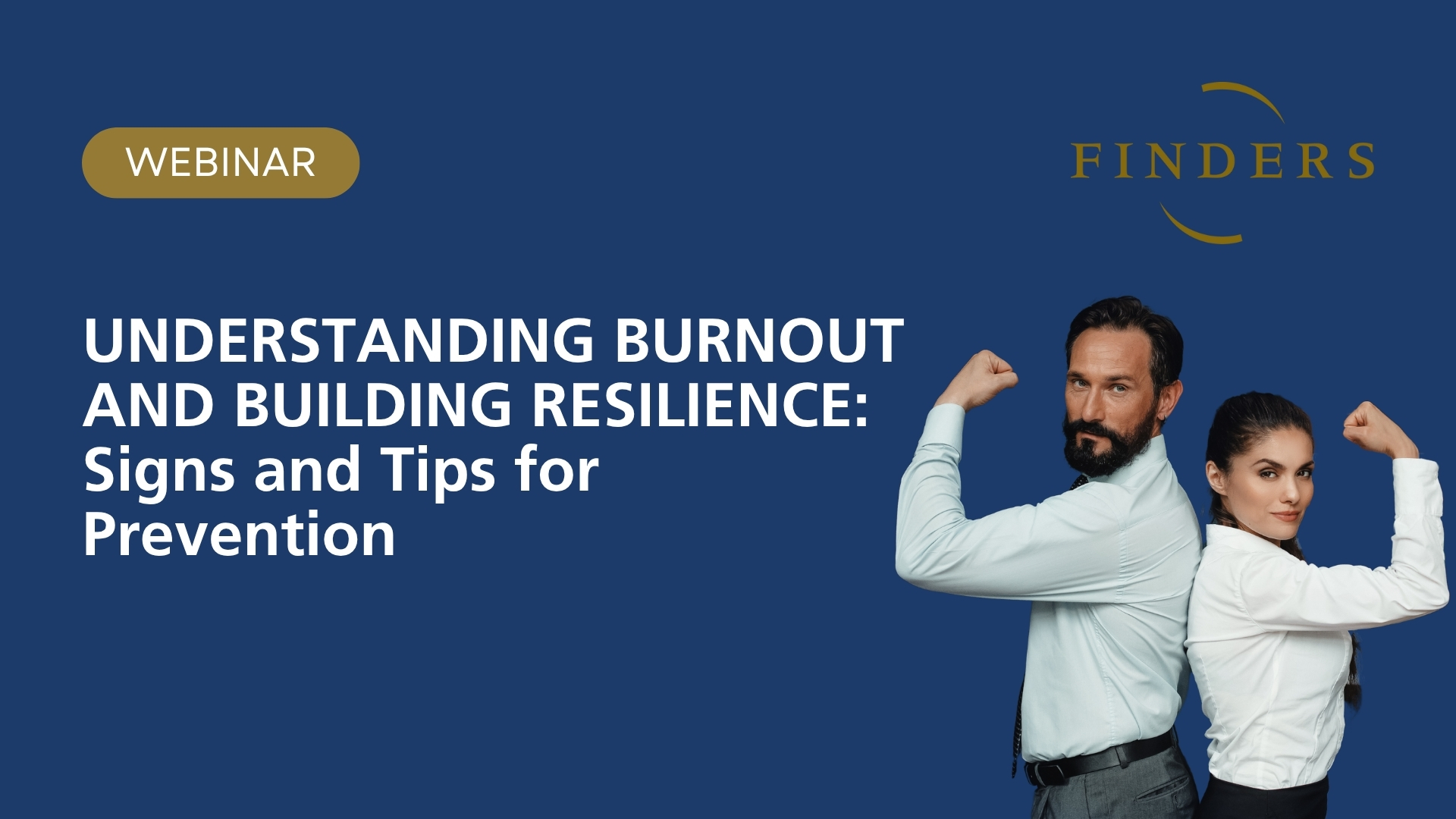
The webinar on recognizing and preventing burnout, organized by Holinstinct — specialists in well-being and transformational coaching — and hosted by Finders, offered valuable insights into a growing issue in today’s workplaces. It explored the effects of chronic stress, clarified the difference between stress and burnout, and shared strategies to prevent and manage these challenges. Here are the key takeaways for HR professionals and business leaders.
Top Insights
- Stress has serious health consequences: Chronic stress can trigger serious illnesses such as heart disease, diabetes, obesity, and autoimmune disorders. It’s not just feeling overwhelmed—its long-term impact on health is real.
- Burnout is linked to chronic stress: According to the WHO, burnout results from unmanaged work-related stress and shows up as exhaustion, cynicism toward work, and reduced effectiveness.
- Stress vs. burnout: Stress is temporary and usually improves after rest, whereas burnout is chronic and persists even after breaks or vacations.
- Economic impact of stress and burnout: Stress and burnout cost companies and the global economy billions through lost productivity, absenteeism, and high employee turnover.
- A holistic approach matters: Preventing burnout requires attention to body, mind, and emotions. Regular breaks, balanced nutrition, emotional management, and healthy routines all play a key role.
- Leaders play a crucial role: Managers and HR advisors should watch for burnout signs (fatigue, low motivation, frequent mistakes) and create supportive environments. Encouraging employees to seek expert guidance when needed is essential.
- Resilience can be built: Burnout isn’t inevitable. Daily practices like stress management, meditation, and balanced routines help prevent it and strengthen resilience.
- Effective support programs: Initiatives such as “Revitalize and Thrive” provide practical tools to prevent burnout, build resilience, and improve productivity through workshops, webinars, and online resources.
Recognizing and addressing burnout early is essential for maintaining both personal well-being and professional performance. Burnout is not inevitable—by adopting holistic practices that support the body, mind, and emotions, individuals can prevent exhaustion, reduce cynicism toward work, and maintain effectiveness. Leaders and organizations play a crucial role in creating supportive environments, offering guidance, and encouraging access to resources. With the right strategies and routines in place, it is possible to build resilience, protect mental and physical health, and sustain long-term productivity.
Watch the full webinar here:
Discover our previous articles
Should recruitment be based on moral alignment? The return of values in the recruitment process
Pension Scheme: 5 Key Tips for HR Professionals
Webinar: Assess and Optimize Your Employability to Boost Your Career
